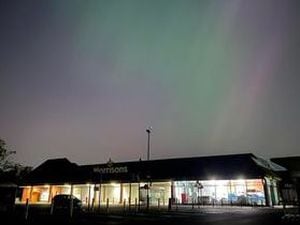Wolverhampton Council to go ‘paperless’ at future meetings
A ‘paperless’ approach is being adopted for council meetings in Wolverhampton in order to reduce the local authority’s carbon footprint, highlight its digital strategy and reduce costs.

The council’s governance and ethics committee is set to approve plans next week which will see the electronic delivery of all committee/panel meeting agendas, with paper copies provided to any members citing medical reasons such as visual impairments or hidden disabilities.
As well as the environmental benefits, going ‘paperless’ will also see the council make a saving of around £10,000 a year.
In a report to the committee, the council’s democratic services manager Jaswinder Kaur said: “The council currently provides – and delivers via royal mail or courier – printed copies of council agendas to all councillors of the committees to which they have been appointed. Spare copies of the agendas – approximately four per meeting – are also printed and made available for councillors, press and public.
“Following a request, councillor preferences were checked with all members by the political assistants and 24 councillors requested digital only access to papers with 36 requesting paper copies. Of these, four stated that they had health-related reasons for paper copies being required.
“The primary benefit of paperless meetings is the reduction of the council’s carbon footprint, highlighting the authority as being environmentally responsible. Paper and stationery usage is reduced, less energy is used to produce printed papers and less transport is involved.
“It will also save on water, which is used in every stage of paper production, such as pulp-making, processing and paper manufacturing – plus the associated activities of cooking, bleaching, and washing,” she added.
“The costs associated with printing and posting council and committee papers vary each year with the number of meetings held and the size of agendas and individual reports, but have consistently been just over £10,000 annually.
“Moving to paperless meetings provides councillors with an opportunity to embrace new forms of technology, to deliver savings and embrace more efficient working practices.
“Through the Modern.Gov app councillors are able to access meeting papers from any place, at any time to suit their personal commitments. Most tablet devices are small, portable, convenient and easy to use once members become familiar with them,” said Ms Kaur.
“It is recognised that some councillors will adapt quicker than others to a transition to paperless meetings – therefore the high standard of support provided to them will be crucial. The IT and digital team will ensure that all councillors are content with the equipment they have and that it is fit for purpose. Training will also be provided by democratic services.”
The council’s governance and ethics committee is set to approve the move next Thursday (November 24).





